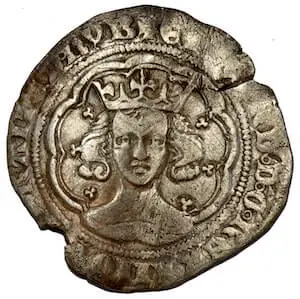You ‘throw good money after bad’ when, following the loss of some money, you to incur a further loss in trying to make good.
Throw good money after bad
What's the meaning of the phrase 'Throw good money after bad'?
What's the origin of the phrase 'Throw good money after bad'?
When I heard ‘throw good money after bad’ in a radio play recently I wondered about the meanings of ‘good money’ and ‘bad money’. In our 21st century culture surely any money is as good as any other?
I guessed that the expression dated from the days when the coinage in England (and this phrase is English in origin) was corrupted by unscrupulous people clipping or filing metal from the edges. Some coins became so degraded as to become worthless and could easily have been labelled as ‘bad money’.
As it turns out my guess was off the mark. The expression ‘good money after bad’ wasn’t a comparison between newly minted and clipped coins but a reference to money lost in some venture, that is, the ‘bad money’, and money that one might use to make up the loss – the ‘good money’. Examples of throwing good money after bad might be betting on one big long-odds win on the horses after losing most of one’s money in previous races, or spending money on an old banger of a car that had had work done on it but is still unroadworthy.
In proverbial form ‘don’t throw good money after bad’ is advice that, after losing your money on a poor investment, you should cut your losses and keep your remaining money safe in your pocket.
The first example that I can find in print is in the American newspaper The Maryland Gazette, January 1765 in a letter between two Indian gentlemen, one of whom advises the other not to attempt to recover money from someone who had defaulted on a loan:
[If you don’t chase the money] … thou wilt not run the hazard of fresher losses, by throwing good money after bad.
The above citation notwithstanding, the phrase originated in England in the 18th century. All of the other early examples in print come from English sources and the Indian author of the letter above was referred to as a Gentoo, that is one of the ruling class, and, being English speaking, he was probably educated in England.
See other ‘Don’t…’ proverbs:
Don’t cast your pearls before swine
Don’t change horses in midstream
Don’t count your chickens before they are hatched
Don’t cut off your nose to spite your face
Don’t keep a dog and bark yourself
Don’t let the cat out of the bag
Don’t look a gift horse in the mouth
Don’t put the cart before the horse
Don’t shut the stable door after the horse has bolted
Don’t throw the baby out with the bathwater
The history of “Throw good money after bad” in printed materials
Trend of throw good money after bad in printed material over time
Related phrases and meanings
Browse more Phrases
About the Author

Phrases & Meanings
A-Z
A B C D E F G H I J K L M N O P Q R S T UV W XYZ
Categories
American Animals Australian Bible Body Colour Conflict Death Devil Dogs Emotions Euphemism Family Fashion Food French Horses ‘Jack’ Luck Money Military Music Names Nature Nautical Numbers Politics Religion Shakespeare Stupidity Entertainment Weather Women Work
How did we do?
Have you spotted something that needs updated on this page? We review all feedback we receive to ensure that we provide the most accurate and up to date information on phrases.
